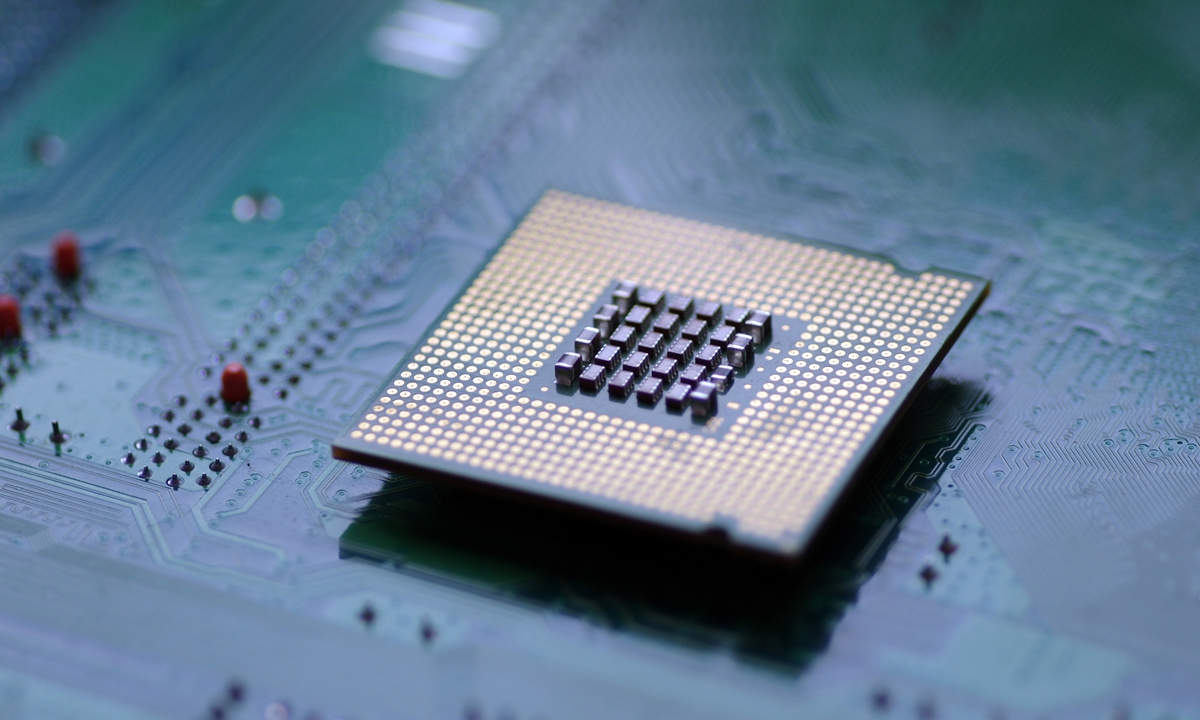China able to strive for self-improvement amid forced tech ‘decoupling’: academician
Source: Global Times Published: 2020/12/5 18:38:39

Photo:VCG
Tech "decoupling" is forced by others on China, but the nation is able to strive for self-improvement to fend off woes from being sanctioned, Ni Guangnan, a noted Chinese scientist, said at Global Times' annual forum on Saturday.
Replacing foreign products with domestically developed ones will become a new normal in the long term, said Ni, an academician with the Chinese Academy of Engineering.
He called for changes in aspects such as ideas, aside from boosting the building up of an independent system by using available tools and technologies.
In a fresh decoupling move, the US Department of Defense on Thursday added Chinese major chipmaker SMIC and three other Chinese companies - China Construction Technology Co, China International Engineering Consulting Corp. and China National Offshore Oil Corporation - to a list of companies claimed to be linked to the Chinese military.
Saying the blacklisting wouldn't have a major impact on its operations, SMIC revealed in a statement on Friday that all US persons will be banned from the purchase of the company's shares for 60 days commencing Friday and dealing in its securities will be not allowed for all US people after 365 days therefrom.
As the West might reject China's ecosystem, the nation ought to embark on a new ecosystem that doesn't rely on any other country. China needs to unite any company and country willing to jointly build the ecosystem which requires a new set of standards, Ye Tianchun, director of the Institute of Microelectronics at the Chinese Academy of Sciences, said at the same forum.
Industry insiders expressed optimism for overcoming the issue of being strangled in key areas, as they have encountered such problems for more than 20 years.
"For the past more than two decades, we've suffered repeatedly from the US' chocking crackdown in the technology field. It's not something that only emerged these past two years with the clampdown on ZTE and Huawei," Dou Qiang, general manager of chip designer Phytium Technology Co, said at the same forum. Along with China's sci-tech rise, the nation will continued to encounter the problem, he said.
China's aerospace industry will naturally face a crackdown. But look at China's achievements; its aerospace's development cannot be contained, Mu Sen of China Aerospace Science & Industry Corp, said at the forum. "We can now do things under the Chinese system that cannot be achieved under the US system," he said.
As China seeks to build a new development pattern that is centered on domestic growth while domestic and foreign markets reinforce each other, the country will continue to maintain opening-up and embrace globalization in a large number of tech sectors, Jia Kang, president of the China Academy of New Supply-side Economics, said in a speech to the forum via video.
"The advocates for scientific research behind closed doors misunderstand China's push for sci-tech self-sufficiency. China would bank on new national mechanism to achieve breakthroughs in key areas while holding onto international cooperation," he said.
Global Times
Posted in: INDUSTRIES